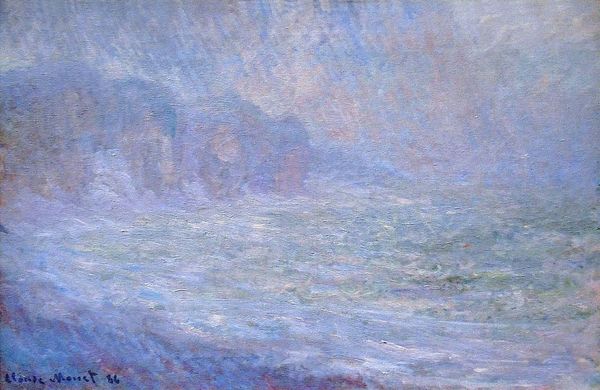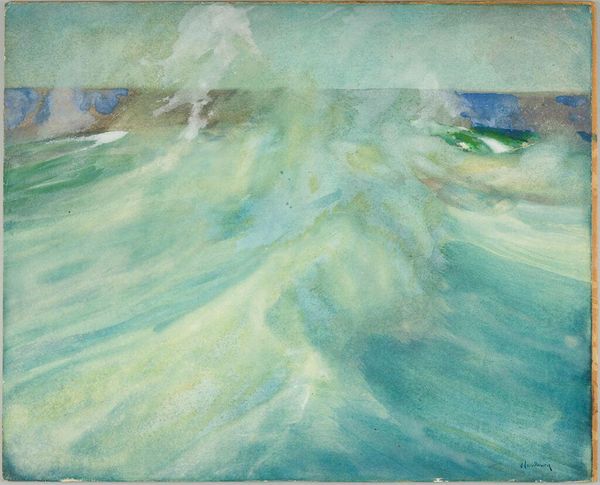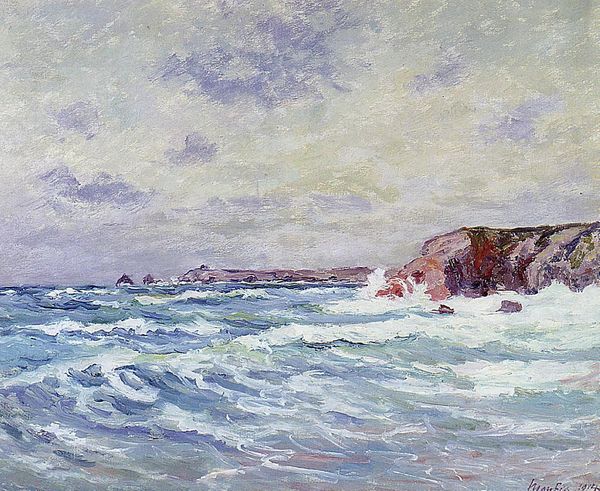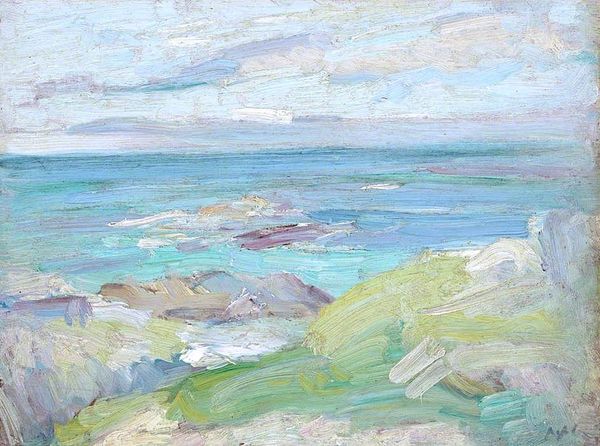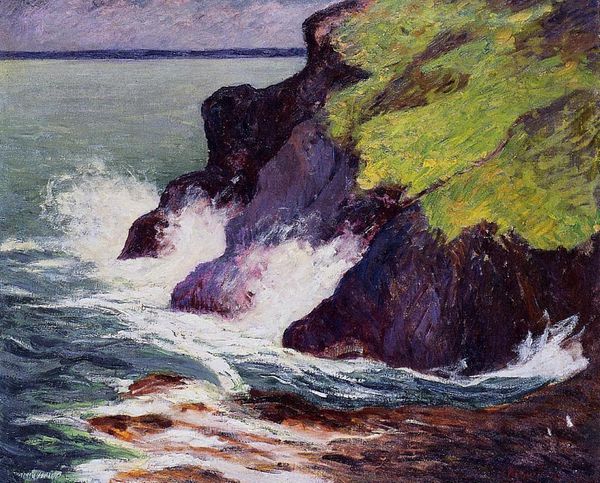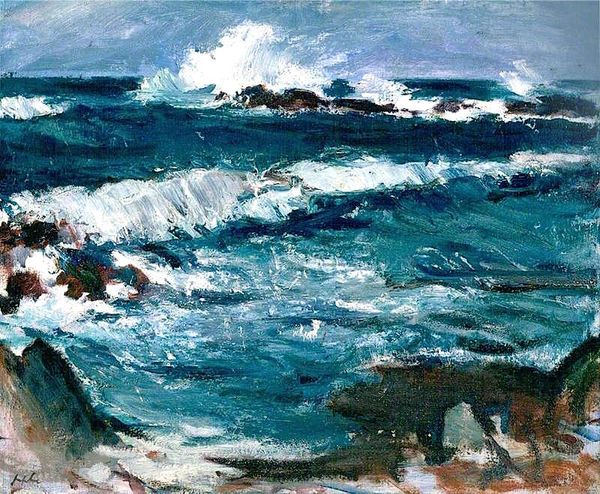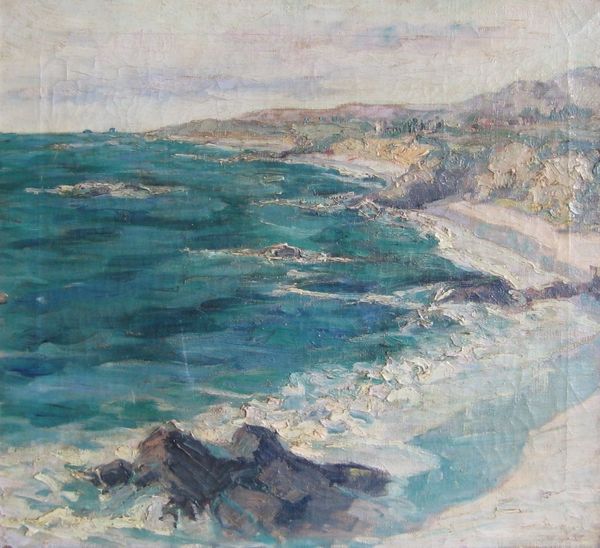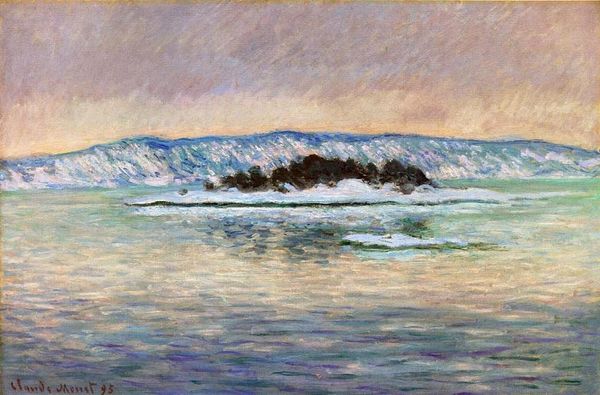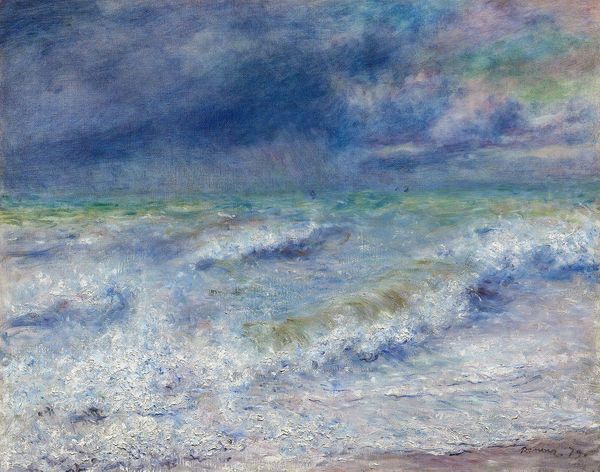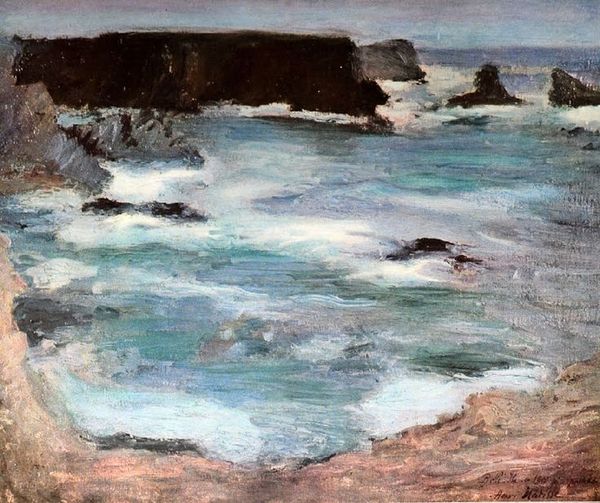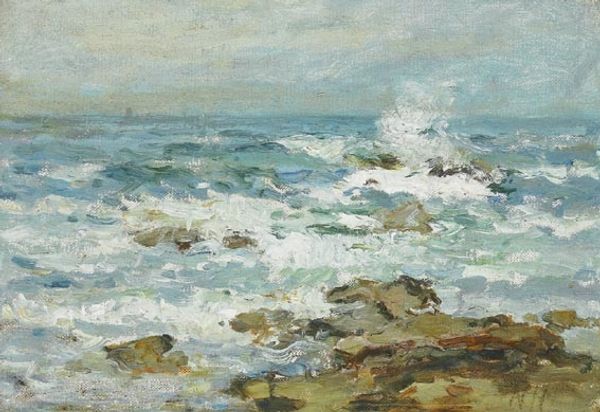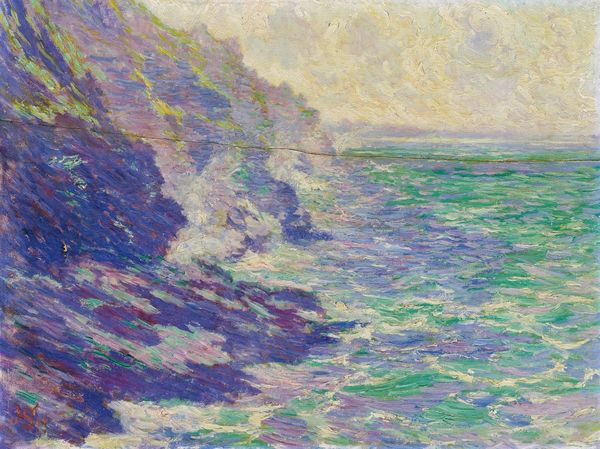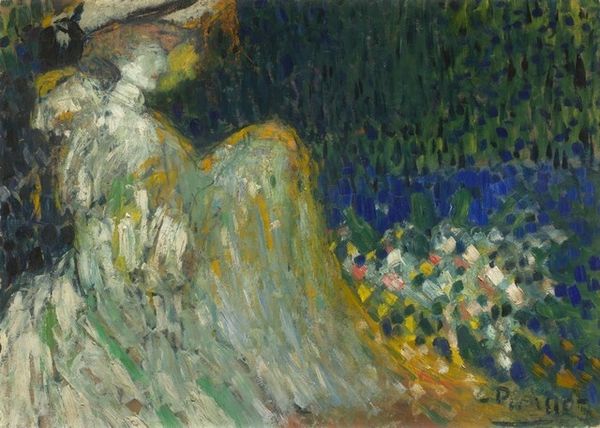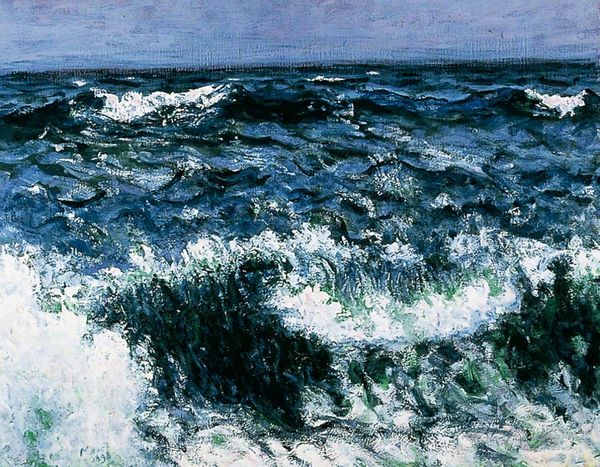
Dimensions: 66 x 81.8 cm
Copyright: Public domain
Curator: The piece we are observing is entitled “Rough sea, Morestil,” created by John Peter Russell around 1900. It's an oil on canvas, currently held at the Art Gallery of New South Wales. Editor: Wow, I'm immediately struck by the energy! The rough, almost chaotic brushstrokes—they feel so alive. It's like I can smell the salt and hear the crash of the waves. Curator: Russell, an Australian impressionist painter, was known for his vivid seascapes and his engagement with avant-garde art circles in Europe. Considering its historical context, painted around the turn of the century, we must consider how the burgeoning colonial structures of that era influenced his interpretation of nature and its perceived ‘roughness’. Editor: That's interesting...colonial structures versus this roiling sea. I suppose it's a question of perspective. To me, this is pure, untamed power. Look how the blues and greens clash, how the light seems to dance on the water's surface. It almost vibrates with a kind of primal energy. Curator: That vibrancy might reflect the romantic notions of nature, yet also potentially echoes power structures, how colonial power conceptualizes a 'sublime' landscape that could reflect the raw power and exploitation of both land and the colonized subjects intertwined within. Editor: I see what you're saying. It’s a fair point. Maybe there's an undercurrent of that colonial gaze at work. But to me, at first glance, it still screams something different. Like, haven't we all felt small in the face of the ocean, stripped bare of our assumptions? The scale of the mountains looming feels like they’ve been around forever. It’s all very grounding! Curator: Perhaps in the humbling experience the painting invokes, we also feel compelled to consider what that might symbolize beyond an innocent encounter; we see nature as a space burdened with colonial legacies. Russell offers an invitation for such re-imaginings. Editor: Absolutely. That intersection of the personal and the political is what makes art so enduring, right? It mirrors, reflects, distorts. Makes you think differently. I reckon old John Peter was onto something, whether he fully realised it or not. Curator: I agree. Even if inadvertently, it leaves us contemplating, contextualizing and reframing our assumptions. Editor: Well said. Now, if you’ll excuse me, I need to find the nearest beach! I am craving to experience this energy firsthand.
Comments
No comments
Be the first to comment and join the conversation on the ultimate creative platform.
